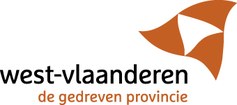Interreg 2 Seas - Grassification
Introduction
The GRASSIFICATION project aims at increasing the attractiveness and viability of using roadside grass clippings as a renewable resource for the production of biobased products, thus promoting a more circular economy. The project, funded by the Interreg 2 Seas Programme, is coordinated by Prof. Erik Meers (Ghent University, Belgium) and started in 2018, with a total duration of 3 years. Thirteen research groups, companies and institutes - from Belgium, the Netherlands and the UK - are involved in this European project on developing a more resource-efficient economy.
Description
Grass clippings from maintenance of our roadside verges pose a problem throughout Europe in general, with the involved regions in the Netherlands, Belgium and the UK in particular. Due to the high volumes of biomass involved , this is reflected in high (waste) processing costs. Both industry and local authorities, however, are interested in the possibility of using roadside grass clippings as a novel biobased resource. The common challenges for applying roadside grass clippings as a renewable feedstock in industrial processes are currently threefold:
- the supply chains are not yet optimal, resulting in higher costs;
- potential value chains for making new resources, products, chemicals and energy need to be assessed for technical and economic feasibility
- the institutional framework is unsupportive, leading to legal and political challenges.
The opportunities to be addressed by the GRASSIFICATION project can thus be situated at different levels of the roadside grass clippings value chain that hinder altogether the use of grass clippings by the industry as a renewable resource.
Objectives
These are the objectives of the Grassification project:
- Optimization and demonstration of technical and logistical aspects of the entire roadside grass clippings refining process;
- Assess and demonstrate at operationally relevant scale industrial pathways that can turn roadside grass clippings into novel biobased products (from biocomposites produced from grass fibres), chemicals or renewable energy
- Recommendations towards policy makers and industrial stakeholders to stimulate the uptake and roll-out of roadside grass clippings refining.
Role of Ghent University
The Faculty of Applied Bioscience Engineering of Ghent University is specialized in applied research and development with and for market actors. The ECOCHEM research group, within this faculty, focuses on renewable resources from bioprocesses, with particular expertise in biogas related processes as well as in nutrient and carbon flows associated to such processes.
As lead partner, Ghent University will ensure a good project delivery by a concise follow-up of the proposed activities across the different partners. Moreover, the research expertise of ECOCHEM will be directly applied for the valorization of grass clippings into relevant products, and the communication network previously established through the Biorefine Cluster Europe, coordinated by Ghent University, will be used for reaching stakeholders and disseminating the project’s results.
Dutch summary
GRASSIFICATION is een INTERREG 2 Zeeën project dat overheen landsgrenzen oplossingen zoekt voor een gemeenschappelijk probleem. Het GRASSIFICATION project streeft ernaar om bermmaaisel afkomstig van het beheer van onze wegen te valoriseren als biogebaseerde grondstof, eerder dan ze (zoals nu) te behandelen als afval. Het project, onder coördinatie van de Universiteit Gent, omvat 13 partners uit België, Nederland en het Verenigd Koninkrijk. Binnen het project zal gekeken worden naar de raffinage van bermmaaisel tot nieuwe biogebaseerde producten (via biocomposiet materialen vervaardigd uit gras vezels), chemicaliën (kunstmestvervangers en geëxtraheerde proteïnen) en hernieuwbare energie (via biogas). Het project wordt geleid door de Ecochem onderzoeksgroep van de Universiteit Gent (Fac. Bio-ingenieurswetenschappen). Deze onderzoeksgroep is gespecialiseerd in de (her-)winning van biogebaseerde grondstoffen ter vervanging van fossiel gebaseerde grondstoffen.
Website
Interreg Grassification
Biorefine Grassification
Contact
Prof. Erik Meers
Department of Green Chemistry and Technology
E-mail: Erik Meers


